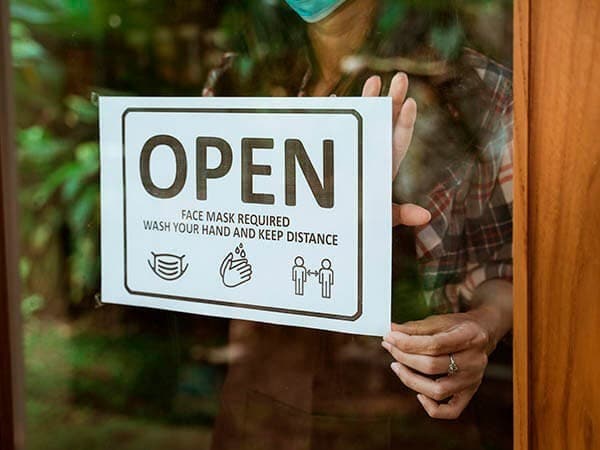Wondering how to put up a restaurant business in the Philippines? Launching a food business is both challenging and rewarding. Doing it with a limited budget can be a feat but not entirely impossible. Many people might think that pursuing the entrepreneurial path in the Philippines is wishful thinking, but doing so opens up various opportunities to fulfill the growing demands of the local market.
How to Put up a Restaurant Business in The Philippines
Several emerging business ideas could thrive in the country, especially businesses that provide customers with the ease and convenience of being able to transact online. As more and more people recalibrate their priorities, interest in entrepreneurship is now at an all-time high.
So, how to start a restaurant in the Philippines? Whether you’re building a business out of a love for cooking or a new income opportunity, having a great concept and enough business know-how can drive success. But to get your restaurant up and running, there are several legal aspects to consider. To operate properly, filing all the government requirements should be one of the top priorities on your opening-a-restaurant checklist.
How to Establish Your Business Structure

Before you begin applying for permits needed for a restaurant, you need to decide what type of entity you want your food business to be. This is important because your business structure will affect everything from how you pay your taxes, what permits to apply for, and to what extent your liabilities are as the owner.
To help you out, here are different business structures under Philippine law:
1. Sole Proprietorship
A Sole Proprietorship means the business is owned solely by one individual who is responsible for all assets and obligations. In this case, you get to enjoy all of the profits, but at the same time, shoulder all the possible losses as well. If you want full control and authority over the business, this is the business structure for you.
Sole Proprietorships must be registered with the Department of Trade and Industry (DTI) and must apply for a business name.
2. Partnership
If you prefer to operate a business with other individuals with skills to complement your own, you should go down the Partnership route. Under the Civil Code of the Philippines, a Partnership's legal personality is separate from its owners.
Go for a General Partnership if you and your partners are willing to share the unlimited liability of the business. But if you prefer an arrangement where only some partners get unlimited liability then a Limited Partnership is something you can look into.
Consult with the Securities and Exchange Commission (SEC) regarding the registration of your Partnership.
3. Corporation
If you plan to open a bigger restaurant, then you might want to consider starting a Corporation. With a minimum of five and a maximum of 15 shareholders, the Corporation limits your liabilities to equal the number of your shares in the business. Similar to a Partnership, a Corporation is treated as a separate entity from its owners, and must always be registered under the SEC.
It is up to you to determine which legal structure best suits the business that you have in mind. Getting to the bottom of it takes a lot of planning, evaluating, and assessing, so if you're finding it difficult to make up your mind, consulting a business advisor would be of great help.
How to Set Up a Restaurant Business Legally

Once you've sorted out your legal business structure, it's time to secure the permits and licenses for a restaurant business in the Philippines.
Here are the legalities a new food business owner should be familiar with:
Register with DTI or SEC
The most pressing question for entrepreneurs looking to set up an online food business is: Do I need to register? The answer is yes! Even if you’re offering your services entirely online, you still need to apply for certain registrations and acquire permits.
Where you register your business, whether with SEC or DTI, would depend on whether your business is a Sole Proprietorship, Partnership, or Corporation.
For Sole Proprietors, you can register your business name with DTI here.
Corporations and Partnerships can check out the requirements on the Securities and Exchange Commission website.
Apply for business permits and licenses
Secure a Tax Identification Number by first obtaining a Mayor's Permit. Processes and requirements vary depending on your municipality, so it's best to consult your Local Government Units. But some of the most common requirements are:
- Barangay Clearance from the local Barangay where your business is located. A photocopy of your SEC/DTI/CDC Registration and a contract of lease are required.
- DTI Business Name Certificate for sole proprietors and Certificate of SEC Registration for corporations and/or partnerships.
- Community Tax Certificate or CEDULA obtained at the City Treasurer’s Office.
- A Sanitary Permit is required to ensure establishments follow the standards of the Sanitary Code of the Philippines. Consider applying the HACCP system to help minimize hazards. You would be asked to provide a Chest X-Ray and 1×1 picture of your employees and a medical certificate issued by the City Health Officer.
- Contract of Lease if you are leasing space, a copy of the Transfer Certificate of Title (TCT), or Tax Declaration if you own the place.
Register with the BIR and SSS
BIR registration is an important prerequisite to doing business in the Philippines. No business is allowed to operate without a tax identification number (TIN). Customers will also likely view your business as trustworthy if it is registered with the BIR.
Get your application forms here.
Aside from working to keep the business afloat, a business owner is also responsible for their employees. That means giving them their salaries on time and registering with the Social Security System. To register with the SSS, you must accomplish the Employer Registration Forms and the Specimen Signature Card (SS Form L-501). Other requirements depend on what legal personality your business falls into, such as Single Proprietorship, Partnership, or Corporation.
Click here for more information on how to register with SSS.
How to align with FDA regulations
Visit the Food and Drug Administration website for detailed information regarding licensing, registration, and regulations.
Putting up a food business demands dedication to turn your passion for cooking into a thriving venture. How to put up a restaurant business in the Philippines legally? Get the paperwork done.
Let Unilever Food Solutions help you transform your business into the next big thing! Explore our complete range of products now.
Related Articles
What you'll get:
- Access to free Chef trainings
- The best recipes and tips from Chefs around the world
- The latest culinary trends